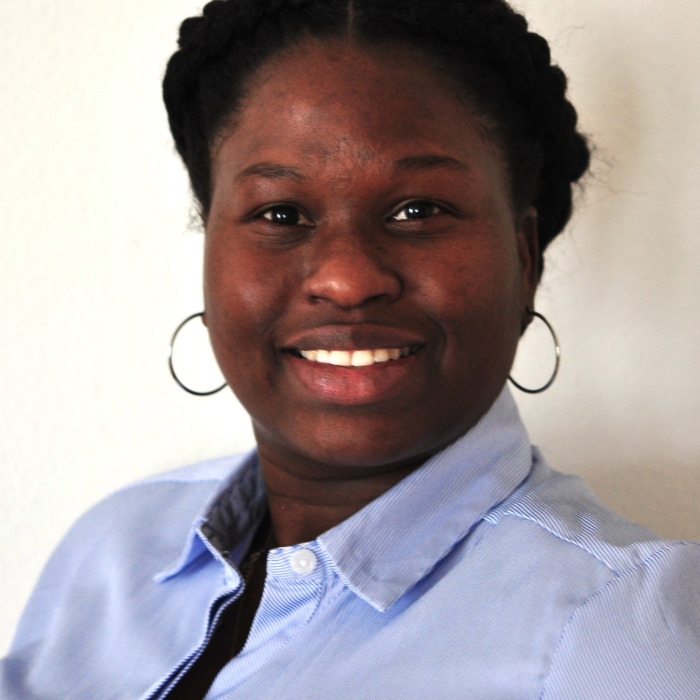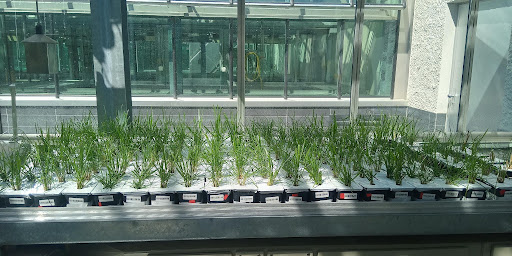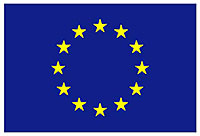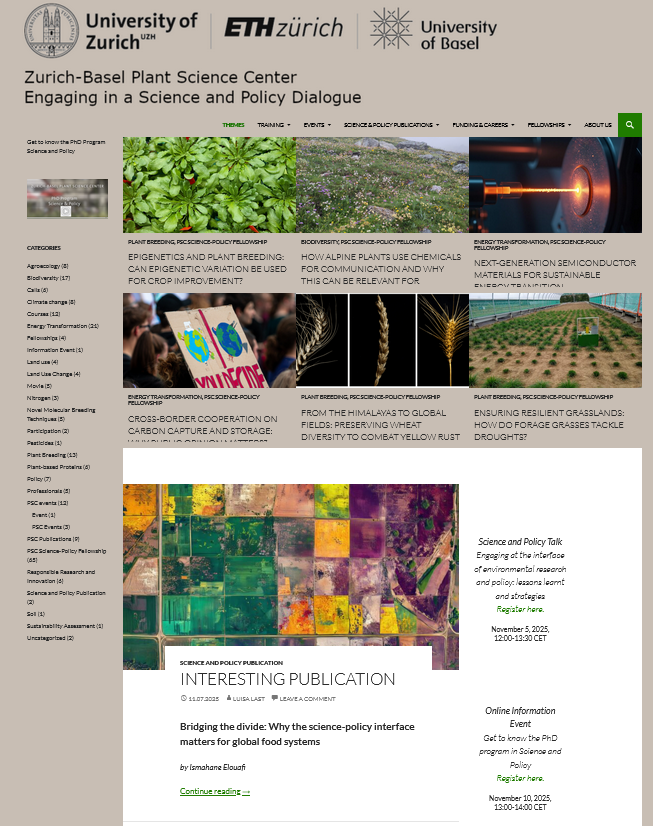Strategies for Improving Forage Productivity under Future Climates
.jpeg)
Fellowship Duration: Feb 2020 - Sep 2024
PhD Student: Reah Gonzales (LinkedIn)
Principal Investigator: Prof. Bruno Studer, Molecular Plant Breeding, Institute of Agricultural Sciences, ETH Zurich, Switzerland
Project Partner: Stèphane Charrier, Station Manager, Barenbrug France, Mas-grenier, France
Research Fields: Plant Science, Quantitative Genetics, Statistics, Applied Plant Breeding
Project Description
Forage grasses are indispensable to European agriculture, providing feed for livestock and contributing to sustainable farming practices. They also play a crucial role in maintaining soil health, preventing erosion, and sequestering carbon. However, the increasing frequency and severity of droughts threaten forage grass production in Europe.
This project aims to understand the response of forage grasses to drought stress. In collaboration with Barenbrug France, we will screen populations of perennial ryegrass (Lolium perenne) and tall fescue (Festuca arundinacea) for drought responses using both high-throughput phenotyping platforms and field conditions. Perennial ryegrass is sensitive to drought, with reduced leaf growth and eventual death under stress. In contrast, tall fescue is known for its drought tolerance, its deep root system allows it to maintain green color and growth under drought.
To gain insights into the traits associated with drought tolerance in both species, we designed two high-throughput phenotyping platforms. These platforms determine the points at which drought stress slows and halts leaf elongation and transpiration. Using these platforms, we screened two diverse panels of individuals: an F2 population and a diverse panel of elite forage grasses. To gain an understanding of the genetic markers associated with drought tolerance, the plants were genotyped using modern methods, and marker-trait association analyses were conducted to identify genomic regions associated with drought tolerance in perennial ryegrass and tall fescue. The molecular markers identified in this study will form the basis for the development of Kompetitive allele-specific PCR markers for use in marker-assisted breeding. These markers will form the basis for the development of drought-tolerant forage grasses, ensuring sustainable production in future climates.
This fellowship is hosted by the Zurich-Basel Plant Science Center.
Activities and Publications
Doctoral thesis on Strategies for improving forage productivity under future climates by genomics-assisted breeding
PSC Blog article (2024) Ensuring resilient grasslands: How do forage grasses tackle droughts?
Conference talk at the EUCARPIA General Congress 2024 (Leipzig, Germany, Aug 2024)
Conference talk at the EUCARPIA Fodder Crops and Amenity Grasses Section Meeting (Brno, Czech Republic, Sep 2023)
Conference poster at the PSC Symposium 2022 (Zurich, Switzerland, Dec 2022)
Open Day at Barenbrug “Improving grassland sustainability” (Oct 2022)
Exhibition; Quantifying the drought response of Lolium perenne and Festuca arundinacea with the Leaf Tracker at OLMA (Oct 2022)
Secondment
During her stay at the research facilities of Barenbrug France, Reah actively contributed to the day-to-day activities of the plant breeding station. She also conducted several field experiments focused on selecting drought-tolerant forage grasses. Reah’s work on identifying drought-tolerant perennial ryegrass genotypes and understanding key traits for early selection in the breeding cycle, in collaboration with Barenbrug breeders, ensures that the findings of this study can be integrated into elite breeding programs. She designed and executed phenotyping experiments to pinpoint traits contributing to drought tolerance in perennial ryegrass and tall fescue. While at Barenbrug's breeding station, Reah presented the results of her phenotyping experiments to the breeders, facilitating knowledge sharing. By identifying the most effective traits for selection and collaborating with breeders at an international forage breeding company, her findings will support the development of drought-tolerant forages, ultimately benefiting farmers.
Duration: Jun 2020 - October 2020, Mar 2021 - Sep 2021, May 2022 Jun 2023
Stakeholder Workshop
From October 12 to 22, 2023, Reah organized an exhibition and stakeholder interaction platform (i.e., Engaging with agricultural professionals, farmers and the public on drought tolerant forages) at OLMA (St. Gallen, Switzerland), focusing on the role of high-throughput phenotyping in breeding drought-tolerant crops. The exhibition and interaction platform aimed to engage farmers, researchers, industry professionals and the public in discussions about how phenotyping technologies can measure plant performance under drought. The exhibition showcased the importance of developing drought-tolerant forage grasses for sustainable food production. Drought tolerant and sensitive forage grasses were displayed on a high-throughput phenotyping platform to assess their tolerance. The platform measures leaf elongation under drought stress. Through discussions and on-site demonstrations, participants explored the applications of this technology in selecting drought tolerant forage grasses. The event emphasized the importance of precision phenotyping in assessing plant responses to drought, highlighting the contrasting drought tolerance between perennial ryegrass and tall fescue. Participating researchers gained insight into the high-throughput phenotyping methods used by the Molecular Plant Breeding group, potentially leading to the adoption of similar techniques. OLMA welcomed 590'700 visitors during the 12-day exhibition, providing an extraordinary platform for stakeholder engagement on advancing sustainable agriculture through innovative plant breeding. Direct engagement with stakeholders helped Reah to align cutting-edge research with the needs of practical plant breeding, stakeholders along the entire value chain, and the public. Feedback from participants highlighted the importance of refining phenotyping methods to support real-world breeding programs.



